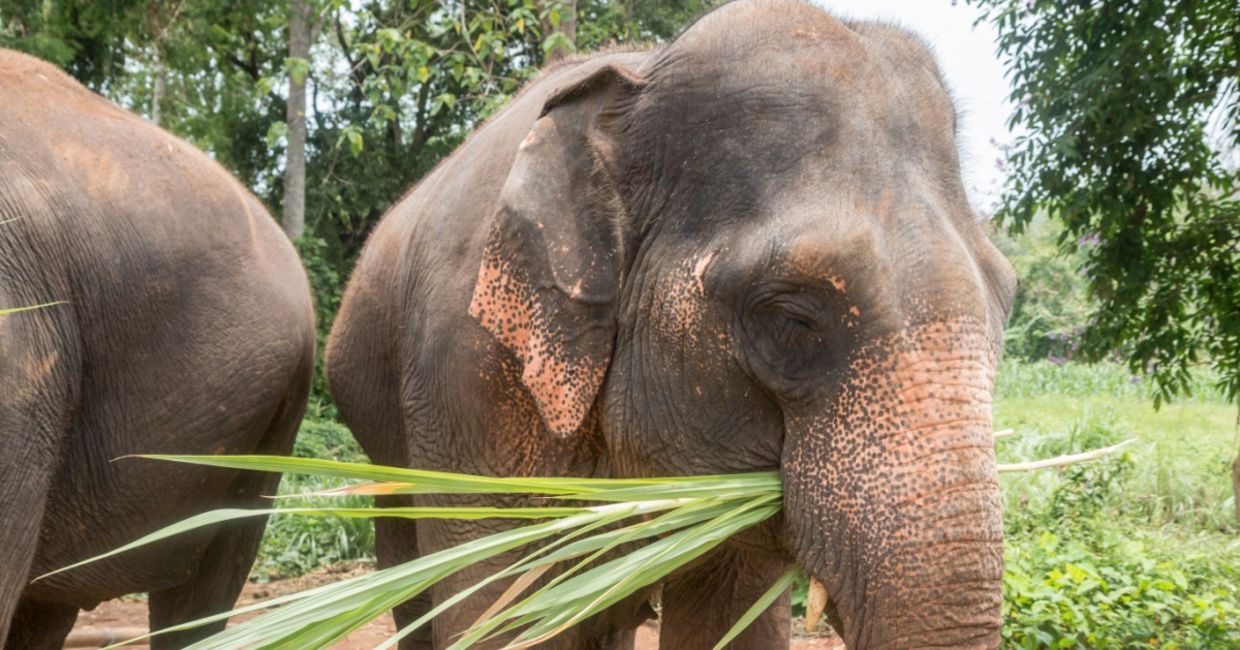
(BlueBarronPhoto / Shutterstock.com)
Some people just get that animals need soothing too. And perhaps no one knows this more than Paul Barton, an expat concert pianist and piano teacher living in Thailand since 1996. He has been playing the dulcet tones of classical music greats such as Beethoven and Debussy to calm retired, formally mistreated elephants, for some 14 years, as the Guardian reports.
From Yorkshire to the rescued elephants in Kanchanaburi
Ever since his artist wife started making sculptures of the animals at Elephant’s World, a sanctuary for rescued domestic elephants just outside Kanchanaburi in Thailand, and watching the resident animals, Barton started to wonder what would happen if he were to play some slow classical music to them, he tells the Guardian. In the decade and a half since then, this Yorkshireman frequently heads to the jungle as he makes his dream happen, but he always brings his quintessentially English calm with him.
ZME Science shares that for his 50th birthday, his wife convinced the management at Elephant's World to allow them to bring a piano into the sanctuary. However, Barton’s personal passion project to play music to these majestic creatures was not one he entered without a few doubts.
As Barton describes on his website, the night before moving his instrument into the wilderness of the Elephant’s World sanctuary, he wondered how the elephants would react to the music: “I contemplated what it would be like to play for the elephants. Would they listen, or would it be dangerous? I decided if I could play only one piece for an elephant, it should be the second slow movement of Beethoven’s “Pathétique” Sonata.” He worked on a shortened arrangement of the gentle piece of music.
Relocating a piano to the great outdoors was just the start!
Our video reveals that moving a piano into nature is no easy feat. As Barton recounts, “Transporting our piano from Bangkok to the wilderness of the mountains in Kanchanaburi was challenging, but we were determined. We designed and made a travel piano, especially for this occasion.” And this patient bull elephant is clearly nourished by the tranquil music.
Since then, he has experimented with various pianos in this natural setting, some with wheels, others on a trolley. When a donated acoustic piano was too heavy to move alone, he enlisted the help of a local team and a pickup truck to transport the instruments to the wild places he explains that the elephants prefer.
Barton has also piloted new musical combinations for the listening pleasure of these beautiful animals. In this video, he is playing a tranquil piece of music by Japanese composer, Mayumi Kato to two female elephants, accompanied by a recording by renowned concert violinist, Lidia Baich.
Today, Barton lives with his wildlife artist wife and family in Bangkok,but also stays in a cottage at Elephant's World, spending part of each month there, volunteering for the elephants.
Music can heal elephants
Barton is convinced that the universal language of music is a perfect route to rehabilitating and soothing local domesticated elephants who were previously subjugated by the controversial “crush” training techniques. As he tells ZME Science, most former working elephants have worked for humans all their lives, and have sadly ended up being blind or disabled from mistreatment.
This pianist has carefully observed the reactions of the elephants to the type of music played, and the instruments they are played on. “Their breathing actually slows down when you play, which tells me they are relaxed and happy,” he tells the Guardian.
On his website, he details that baby and young elephants, for instance, prefer faster-paced music like show songs or ragtime, while older pachyderms favor slow, calm classical tunes. The elephants also prefer music emitted from acoustic pianos, over electric ones, as animals are most sensitive to their natural vibrations.
As the Guardian reports, all appear calmer and more peaceful when played something they enjoy. However, they have their own musical tastes. One elephant will walk away if Barton plays Schubert, rather than Beethoven, which it loves!
As they get used to the piano, and to him, many appear to visit it, awaiting the next performance, while to him, they can feel like family.
An eighty-year-old elephant, Ampan, who is almost totally blind, enjoys Debussy’s “Clair de Lune.” Monkol, a sensitive and gentle elephant now aged 65, loves Beethoven’s slow “Moonlight Sonata” movement. This creature spent his captive life hauling trees in the Thai forest, this hard labor making his body deformed, and leading to the loss of his right eye and tusk. Thankfully, this is now behind him, and this rescued elephant can live out his days relaxing by the River Kwai.
Watching this interaction between the man and the animal in our video is very moving. As one commenter remarks: “You can see in the elephant’s eyes how this beautiful music touches his soul. I hope the hurt and trauma this gentle animal has suffered is healed by this wonderful man. It is so touching to behold the love between these two kindred spirits. “
As this compassionate musician explains on his website: “I feel privileged to live with elephants and enjoy getting to know them as individuals.” Despite the initial risks he takes in getting to know some of the potentially aggressive bull elephants, considered too dangerous to be around people, he considers them “softies when it comes to classical music.”
He shares that he feels it worthwhile to play piano music for them, “especially if it brings comfort to those who have had stressful lives or live in darkness.”







